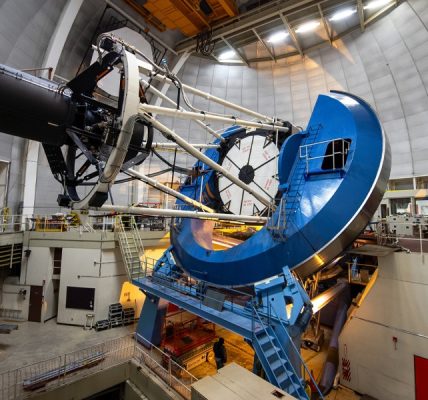Israeli Prime Minister Benjamin Netanyahu: “It’s Time for War” and “Is It Possible” to Reinvent Iran’s Nuclear Program?
After the strike, Prime Minister Benjamin Netanyahu claimed that Israel believed that Iran was restarting its program to make a nuclear weapon. “If not stopped, Iran could produce a weapon in a very short time,” he said in prepared remarks shortly after the strike. Netanyahu stated that the goal was to “strike at the heart” of Iran’s nuclear enrichment program.
“It’s clear Iran is just buying for time; it refuses to agree to this basic requirement of peaceful nations. Netanyahu said that there was no choice but to act and act now.
Israel had voiced concerns about Iran’s nuclear program. Netanyahu said the attacks were a fight for the country’s survival.
The news came hours after the President warned about an attack on Iran. “It looks like it’s something that could very well happen. It is very simple and not complicated. Iran is not able to have a nuclear weapon. Other than that, I want them to be successful. I want them to be tremendous. We’ll help them be successful,” said Trump, who had warned that it U.S talks with Iran failed to curb its nuclear program, a military option was on the table. His Mideast envoy Steven Witkoff had been due to meet Iranian negotiators in Oman on Sunday
Sirens also sounded across Israel in the hours before dawn: an Israel military official told NPR the alarms were pre-emptive. Israel’s Defense Minister Israel Katz issued a statement declaring a “special state of emergency” across the country, and to expects missile and drone retaliation.
There were multiple reports from Tehran that loud explosions had been heard in the northeast of the Iranian capital. Iran’s state TV says that Israel struck the Revolutionary Guards’ headquarters in Tehran and killed the commander. The Revolutionary Guards have influence in Iran’s armed forces and the political and military world.
Israeli Prime Minister Benjamin Netanyahu said Israel had targeted Iran’s main nuclear enrichment facility at Natanz. The head of the International Nuclear Energy Agency said that his agency was in contact with Iranian officials to monitor radiation levels.
“Unless the Israelis can keep bombing them indefinitely,” he says, “they will always have the ability to technically reconstitute the program if they make a decision to do so.”
Lewis wonders if military force is enough to eliminate Iran’s nuclear program. There is no single facility that holds the key to the entire nuclear enterprise in Iran according to him.
Lewis also saw no evidence that Israel had struck at tunnels deep beneath a nearby mountain. Iran was reportedly digging those tunnels to create a more fortified facility for its centrifuges. It had recently promised to accelerate development of the third site, possibly in the mountain facility.
“That’s likely to disrupt operations at the plant, but crucially, what they didn’t do was find a way to destroy the thousands of centrifuges that are buried underground,” Lewis says.
Video posted online and verified by NPR showed black smoke billowing from the Natanz site early Friday morning local time. A set of images from the commercial satellite company Airbus showed damage to the main electrical substation at the facility and to buildings used to assemble and run centrifuges.
The Iranian nuclear program shouldn’t be attacked – a new perspective on the first attack at the Natanz nuclear facility, according to IAEA
Preliminary analysis of satellite imagery at the site suggests the damage from the first wave of attacks was actually limited, according to Jeffrey Lewis, a professor at the Middlebury Institute of International Studies who has tracked Iran’s program.
It’s unclear how quickly that material could practically be converted into bombs. During the enrichment process, the uranium is stored as a gas. It has to be separated and converted into metal in order to make components for a nuclear device. In the early 2000s, there was a covert Iranian program to research a nuclear weapon, but it has never built a weapon of its own.
The Natanz facility has been at the center of Iran’s nuclear program for decades. According to the IAEA, which has been monitoring activities at the site for the past several years, Iran has recently been using thousands of centrifuges to enrich uranium to 60%, far above the levels normally used in civilian nuclear reactors. The agency says that Iran has stockpiled more than 400 kilograms of the highly enriched material, enough by some estimates to quickly build around 10 nuclear weapons.
“I’ve said it before and I’ll say it again, no nuclear facilities should be attacked regardless of the context or circumstance,” Grossi said.
The Atomic Energy Organization of Iran said that there were no radioactive or chemical spills outside of the Natanz plant.
Iran’s nuclear enrichment program is not for peaceful purposes: The IAEA report on the case of the violation of non-proliferation agreements
Jordan said its air force blocked Iranian attacks on Israel while Israel said it had intercepting Iranian drones. While other countries canceled flights or diverted traffic, Jordan closed their airspace to civilian traffic.
Iran is in violation of non-proliferation agreements because of its nuclear program, the International Atomic Energy Agency claimed this week. Iran says its uranium enrichment program is for peaceful purposes.

